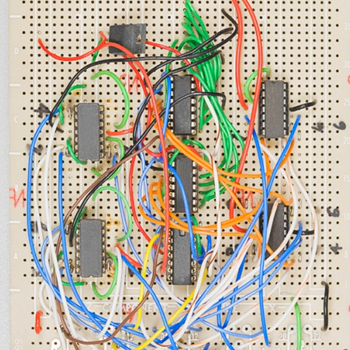How do you factor #x^4-9x^2+18#?
1 Answer
Explanation:
Say:
Then:
After this you can factorise for t:
So factorisation for t would be:
Now, we have to find x; in order to do that, we have to find the roots of t's. Since this is a quadratic equation it has to be equal zero, so:
Accordingly:
Let's find x1 and x2:
and x
Why
To get the correct answers we have to find which of the four roots fits into the equation to satisfy it to be zero.
First, let's try with the first one:
Secondly,
Thirdly,
Lastly,
So the solutions are:

